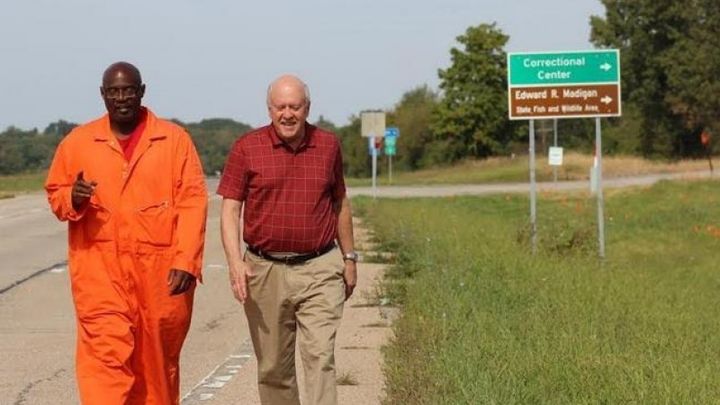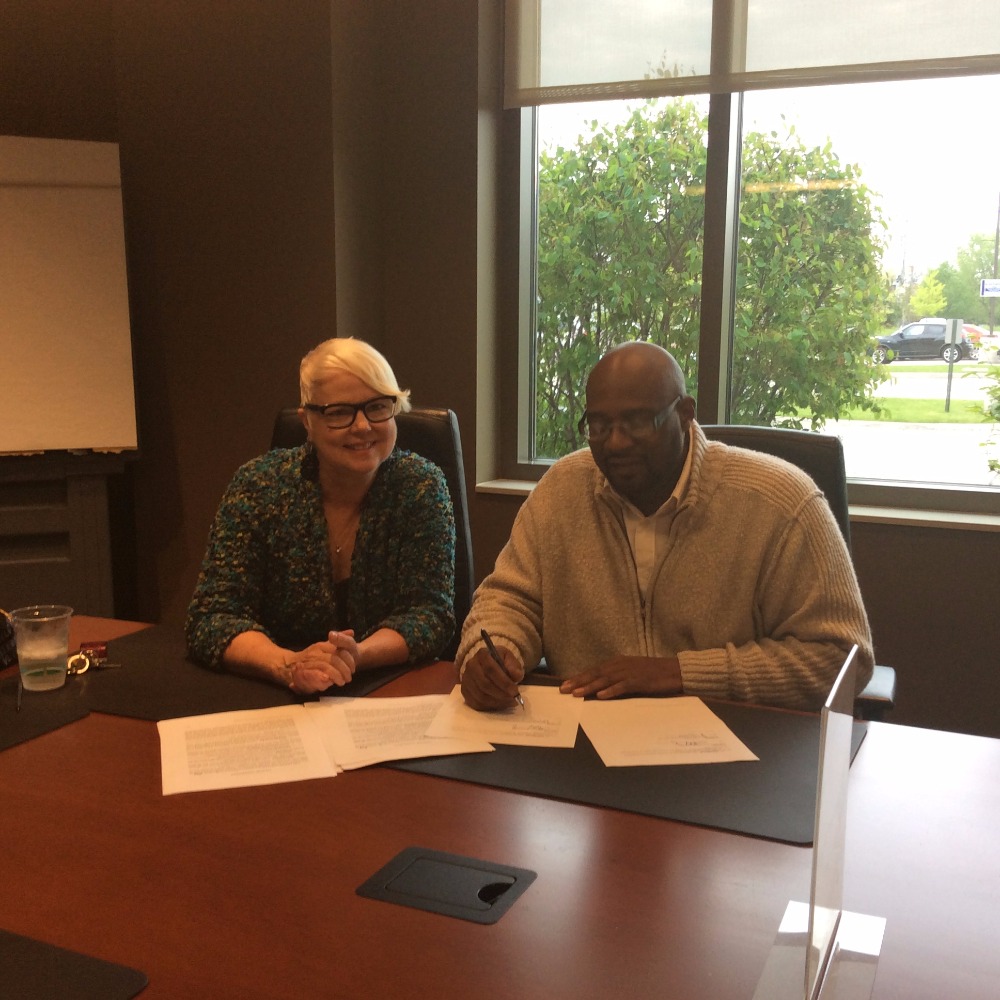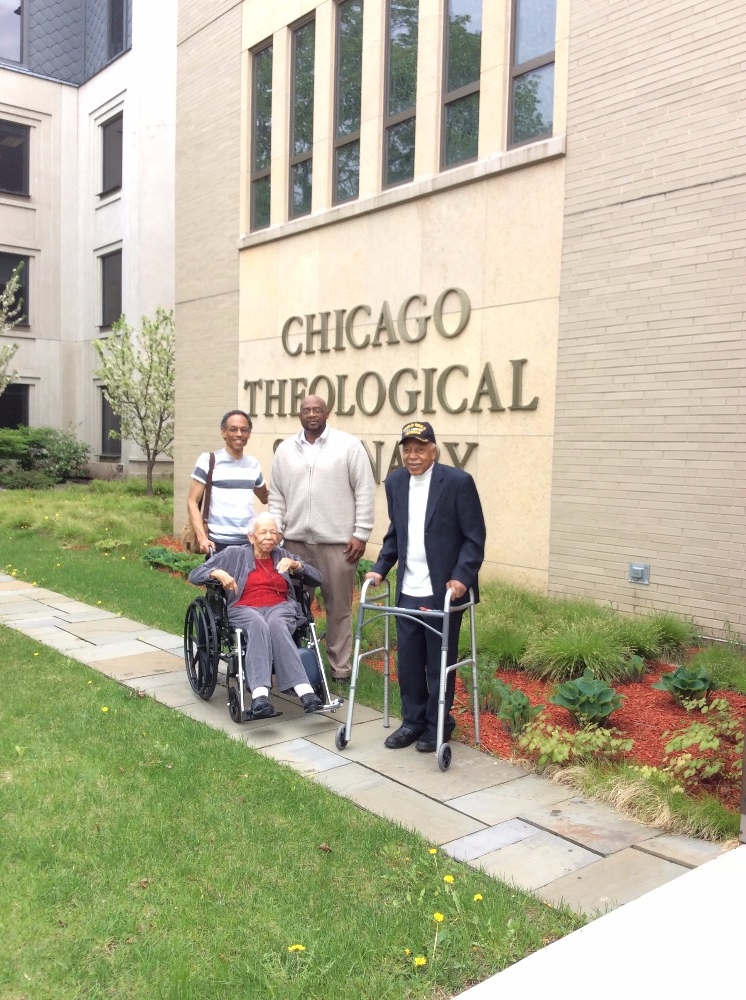
College of Second Chances
Donation protected
"He who opens a school closes a prison." Victor Hugo
I first came into contact with the criminal justice system at the age of fifteen. Though I did not know it at the time, this was an indicator of my future contact with law enforcement and the criminal justice system. Like many African American boys with contact with the court system as a juvenile, I graduated to adult offender status at the age of seventeen. From 1989 until 1993 I racked up an impressive criminal record spanning from Illinois, Indiana, and Maryland to the District of Columbia. All of the charges were considered to be petty-theft charges, some were dismissed and some I plead guilty to.

My final criminal arrest was in 1997. In 1999, I was paroled from the Illinois Department of Corrections (IDOC) and I was officially released from parole in August of 2000. In the time from 1999 to 2006, I embarked upon several respectable and financially successful entrepreneurial ventures. My final venture as a small business owner left me in personal financial ruin, after which I relocated to the Chicago area from Champaign, IL. I faced, in my relocation, many arbitrary consequences of my criminal past, the most significant of which was access to housing and employment. Convicted felons are excluded from living in over eighty percent of the housing in the Chicago area. Convicted felons are also excluded from full participation in the workforce, including and most importantly from basic entry-level jobs. These were just some of the factors that lead me to return to college in the spring of 2008.

I have found that virtually every college and university that expresses the desire to add hundreds of minorities, low-income individuals and former offenders (especially African American men) to its rolls of students is in actuality daunted by the tremendous, negative repercussions of such a possible decision. Data shows that educational achievement has a profound impact upon a person's likelihood of return to prison.

Over forty percent of Ward College students will be currently or formerly incarcerated men and woman in the Illinois Department of Corrections. Our goal is to prepare these students, both academically and socially, with the tools and support needed for successful reentry into their communities.
One undeniable truth in life is that education solves a number of problems, especially for those in the African American community. Prior to attending college, I could not obtain gainful employment due to my felony record. I sought refuge from the issue of my employment status through my return to college. As a student, I was afforded the opportunity to earn an education, receive financial assistance for my educational costs and work in a job on the college campus of my school. The vision of what would become Ward College emerged from my deep desire to extend to others the life-changing care, investment and mentorship that has been given to me over the past several years in my educational journey.

In 2013, several colleagues and I developed the Catalyst Educational Research Center (CERC), a nonprofit organization dedicated to conducting research that would produce superior educational outcomes in historically marginalized communities of individuals. We identified that our biggest challenge was that we needed also to create an educational institution that would provide us an experimental site in which to conduct original research on higher education. To develop a new college was bold, expensive and unheard of. Nevertheless, it was the honest answer to the need of our endeavor.
We decided to test our hypotheses by opening a college that will serve students in need of a second chance in education, employment training, and life. Our goal is to create a unique learning environment that will offer a refuge and oasis of educational opportunity.

The Elijah Glenn Ward Family Ward Foundation is a 501(c)(3) organization that was formed in 2011 to nurture educational and social development within socially and economically struggling communities in Chicago. The board of the Foundation agreed to merge with CERC in order to establish Ward College on the South Side of Chicago—a college to be named for the Ward Family, whose values of education and service had impressed and inspired me and whom I had met through my former professor and current colleague, Elijah Ward. The idea of the college was also inspired, in great part, by my relationship with Sister Susan M. Sanders and the legacy of the Sisters of Mercy of the Americas, whom I had come to know during my time as an undergrad at Saint Xavier University.
Ward College, scheduled to open Fall 2016, will offer certificate programs in a range of occupational fields and will deliver them in a cutting-edge, hybrid course format designed especially for working adults. These programs will be highly accessible and truly affordable. The mission of the college is to provide high-quality certificate programs that prepare students for gainful employment through academic instruction combined with paid internships in the occupational fields for which they are studying. Ward College will also offer a unique AA degree program.

In a nutshell, we are ready to be a disruptive force in higher education. The next steps are not easy, but if they were, others would have accomplished such an effort prior to us. Over time, the college will enable tens of thousands of men and women from low-income and minority communities, as well as those with histories of incarceration, to rebuild their lives and accomplish buried dreams. To touch the lives of our brothers and sisters in such ways fulfills our deep need to devote our energies in service to the highest good.
Beyond what we have raised so far, we estimate that we will need an additional $210,000 to open. However, once we begin operating, Ward College will be self-sustaining financially. Any donation you make is tax deductible.
Please help us put ‘community’ back into ‘college.’
Thanks for your support.
I first came into contact with the criminal justice system at the age of fifteen. Though I did not know it at the time, this was an indicator of my future contact with law enforcement and the criminal justice system. Like many African American boys with contact with the court system as a juvenile, I graduated to adult offender status at the age of seventeen. From 1989 until 1993 I racked up an impressive criminal record spanning from Illinois, Indiana, and Maryland to the District of Columbia. All of the charges were considered to be petty-theft charges, some were dismissed and some I plead guilty to.

My final criminal arrest was in 1997. In 1999, I was paroled from the Illinois Department of Corrections (IDOC) and I was officially released from parole in August of 2000. In the time from 1999 to 2006, I embarked upon several respectable and financially successful entrepreneurial ventures. My final venture as a small business owner left me in personal financial ruin, after which I relocated to the Chicago area from Champaign, IL. I faced, in my relocation, many arbitrary consequences of my criminal past, the most significant of which was access to housing and employment. Convicted felons are excluded from living in over eighty percent of the housing in the Chicago area. Convicted felons are also excluded from full participation in the workforce, including and most importantly from basic entry-level jobs. These were just some of the factors that lead me to return to college in the spring of 2008.

I have found that virtually every college and university that expresses the desire to add hundreds of minorities, low-income individuals and former offenders (especially African American men) to its rolls of students is in actuality daunted by the tremendous, negative repercussions of such a possible decision. Data shows that educational achievement has a profound impact upon a person's likelihood of return to prison.

Over forty percent of Ward College students will be currently or formerly incarcerated men and woman in the Illinois Department of Corrections. Our goal is to prepare these students, both academically and socially, with the tools and support needed for successful reentry into their communities.
One undeniable truth in life is that education solves a number of problems, especially for those in the African American community. Prior to attending college, I could not obtain gainful employment due to my felony record. I sought refuge from the issue of my employment status through my return to college. As a student, I was afforded the opportunity to earn an education, receive financial assistance for my educational costs and work in a job on the college campus of my school. The vision of what would become Ward College emerged from my deep desire to extend to others the life-changing care, investment and mentorship that has been given to me over the past several years in my educational journey.

In 2013, several colleagues and I developed the Catalyst Educational Research Center (CERC), a nonprofit organization dedicated to conducting research that would produce superior educational outcomes in historically marginalized communities of individuals. We identified that our biggest challenge was that we needed also to create an educational institution that would provide us an experimental site in which to conduct original research on higher education. To develop a new college was bold, expensive and unheard of. Nevertheless, it was the honest answer to the need of our endeavor.
We decided to test our hypotheses by opening a college that will serve students in need of a second chance in education, employment training, and life. Our goal is to create a unique learning environment that will offer a refuge and oasis of educational opportunity.

The Elijah Glenn Ward Family Ward Foundation is a 501(c)(3) organization that was formed in 2011 to nurture educational and social development within socially and economically struggling communities in Chicago. The board of the Foundation agreed to merge with CERC in order to establish Ward College on the South Side of Chicago—a college to be named for the Ward Family, whose values of education and service had impressed and inspired me and whom I had met through my former professor and current colleague, Elijah Ward. The idea of the college was also inspired, in great part, by my relationship with Sister Susan M. Sanders and the legacy of the Sisters of Mercy of the Americas, whom I had come to know during my time as an undergrad at Saint Xavier University.
Ward College, scheduled to open Fall 2016, will offer certificate programs in a range of occupational fields and will deliver them in a cutting-edge, hybrid course format designed especially for working adults. These programs will be highly accessible and truly affordable. The mission of the college is to provide high-quality certificate programs that prepare students for gainful employment through academic instruction combined with paid internships in the occupational fields for which they are studying. Ward College will also offer a unique AA degree program.

In a nutshell, we are ready to be a disruptive force in higher education. The next steps are not easy, but if they were, others would have accomplished such an effort prior to us. Over time, the college will enable tens of thousands of men and women from low-income and minority communities, as well as those with histories of incarceration, to rebuild their lives and accomplish buried dreams. To touch the lives of our brothers and sisters in such ways fulfills our deep need to devote our energies in service to the highest good.
Beyond what we have raised so far, we estimate that we will need an additional $210,000 to open. However, once we begin operating, Ward College will be self-sustaining financially. Any donation you make is tax deductible.
Please help us put ‘community’ back into ‘college.’
Thanks for your support.
Organizer and beneficiary
Daniel Geiter
Organizer
Chicago, IL
Ray Catania
Beneficiary